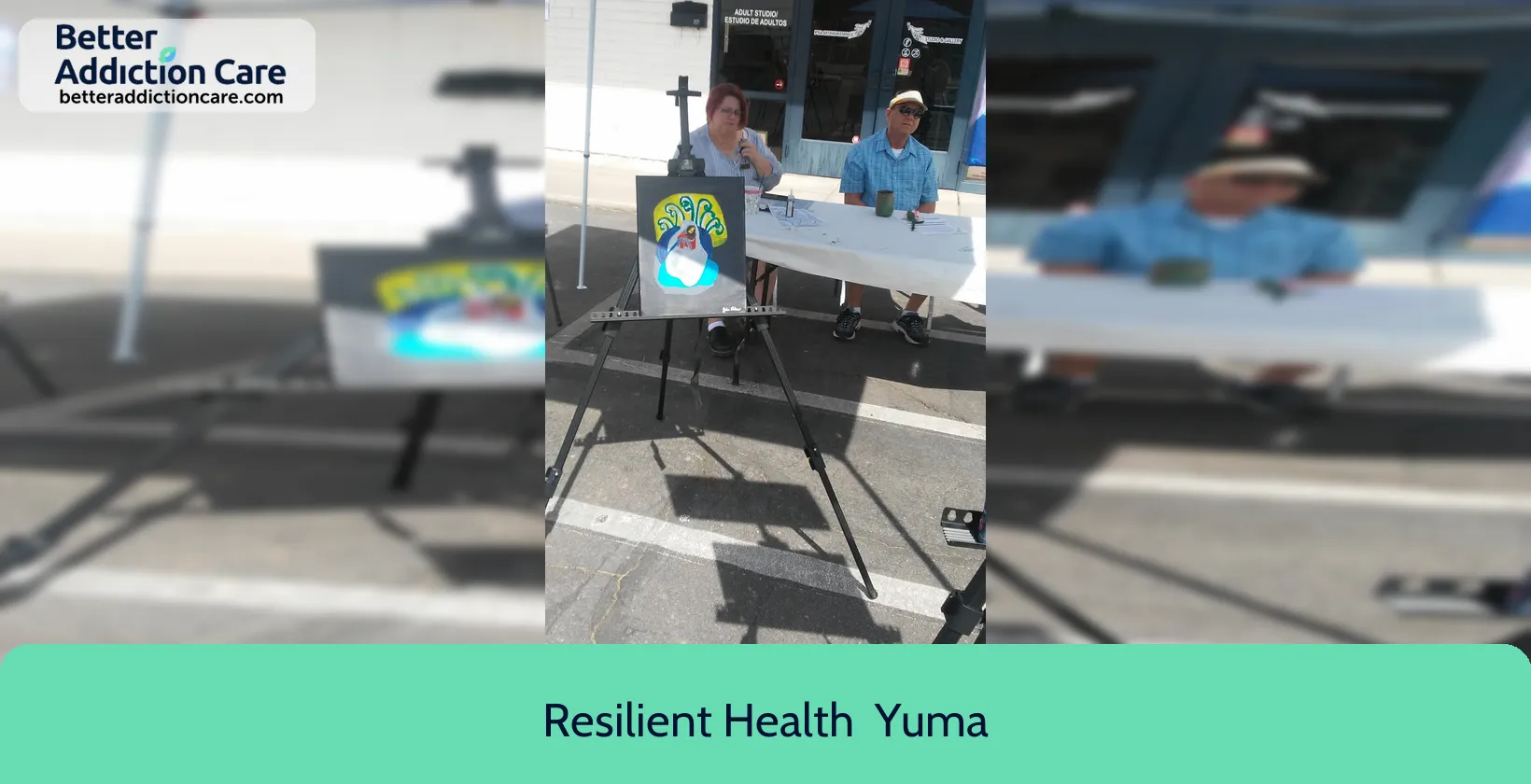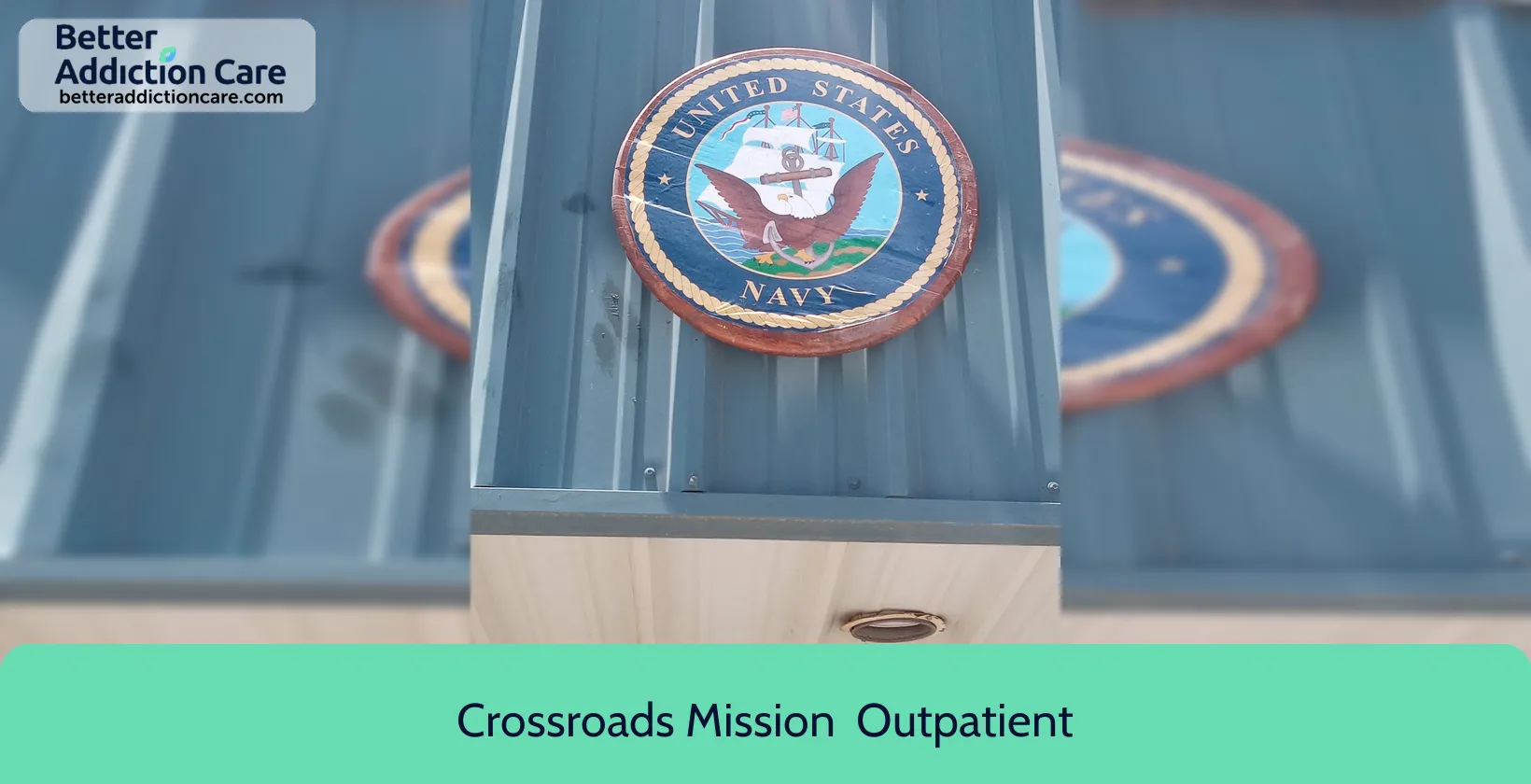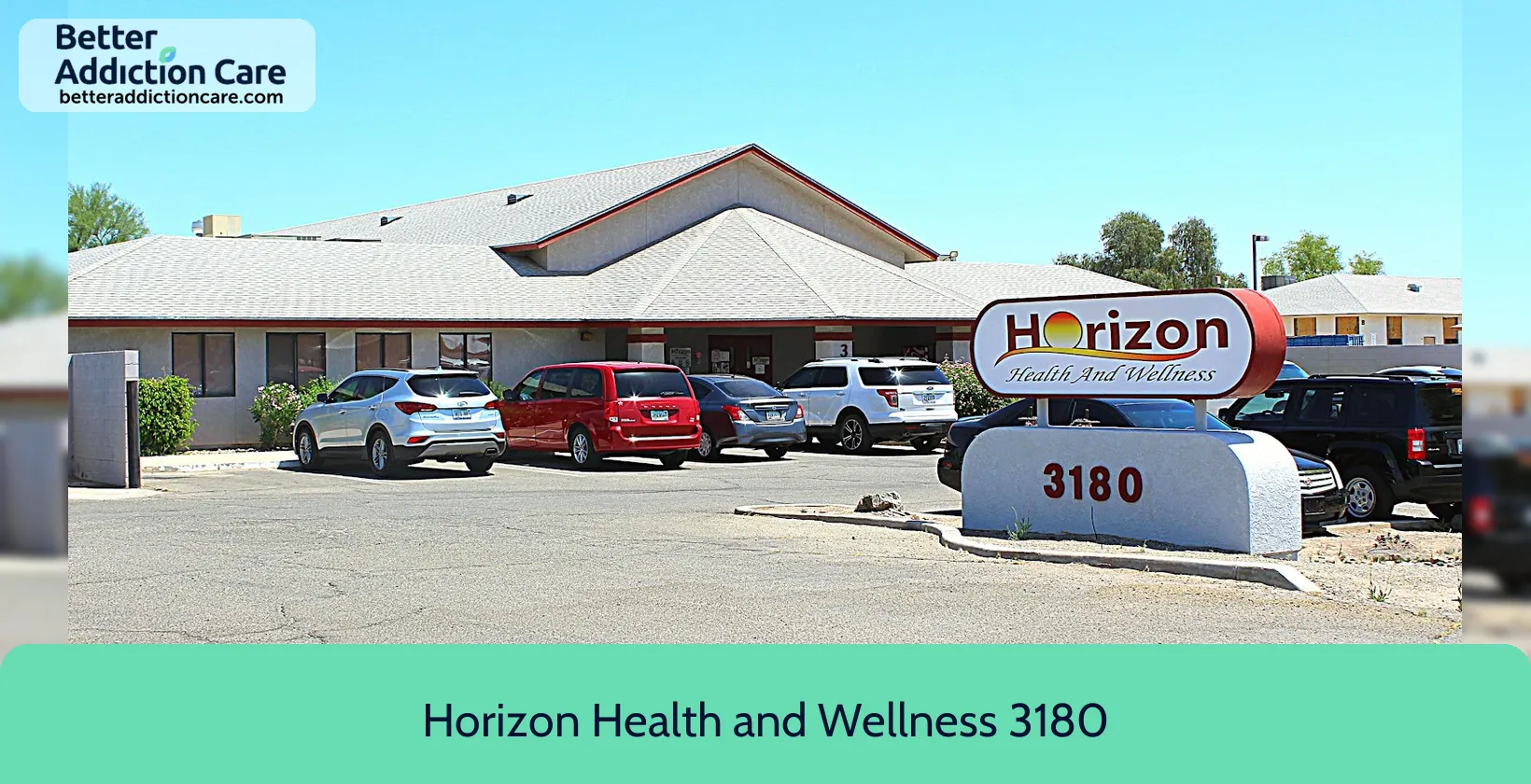Horizon Health and Wellness

Overview
Horizon Health and Wellness is a substance abuse treatment center for people seeking treatment near Yuma County. As part of their treatment modalities for recovery, Horizon Health and Wellness provides family counseling, individual psychotherapy, and cognitive behavioral therapy during treatment. Horizon Health and Wellness is located in Yuma, Arizona, accepting medicaid for treatment.
Horizon Health and Wellness at a Glance
Payment Options
- Medicaid
- Private health insurance
- Cash or self-payment
- State mental health agency (or equivalent) funds
- Medicare
Assessments
- Comprehensive mental health assessment
- Comprehensive substance use assessment
Age Groups
- Adults
- Young adults
- Children/adolescents
Operation
- Private non-profit organization
Highlights About Horizon Health and Wellness
7.09/10
With an overall rating of 7.09/10, this facility has following balanced range of services. Alcohol Rehabilitation: 8.00/10, Drug Rehab and Detox: 6.00/10, Insurance and Payments: 6.80/10, Treatment Options: 7.58/10.-
Alcohol Rehabilitation 8.00
-
Treatment Options 7.58
-
Insurance and Payments 6.80
-
Drug Rehab and Detox 6.00
Accreditations
Commission on Accreditation of Rehabilitation Facilities (CARF):

CARF accreditation is a prestigious recognition for rehabilitation and human service organizations. It signifies that an organization meets high-quality standards and is committed to providing top-level care. CARF conducts rigorous evaluations to ensure compliance, enhancing an organization's credibility and reassuring clients and funders of exceptional service quality. This accreditation promotes excellence and continual improvement in the rehabilitation and human services field.
Registration: 233324
The Joint Commission:

The Joint Commission, previously known as JCAHO, is a nonprofit organization that accredits rehabilitation organizations and programs. Established in 1951, its mission is to enhance the quality of patient care and showcase excellence in healthcare delivery.
Treatment At Horizon Health and Wellness
Treatment Conditions
- Mental health treatment
- Alcoholism
- Opioid Addiction
- Substance use treatment
- Co-occurring Disorders
Care Levels
- Intensive outpatient treatment
- Detoxification
- Aftercare
- Outpatient
Treatment Modalities
- Family counseling
- Individual psychotherapy
- Cognitive Behavioral Therapy
- Nicotine replacement
- Group counseling
Ancillary Services
Languages
- Sign language services for the deaf and hard of hearing
- Spanish
Special Programs
- Clients who have experienced trauma

Additional Locations
Get Help Now
Common Questions About Horizon Health and Wellness
Contact Information
Other Facilities in Yuma

6.74

6.71

6.67

7.00
DISCLAIMER: The facility name, logo and brand are the property and registered trademarks of Horizon Health and Wellness 3180 E. 40th St, and are being used for identification and informational purposes only. Use of these names, logos and brands shall not imply endorsement. BetterAddictionCare.com is not affiliated with or sponsored by Horizon Health and Wellness 3180 E. 40th St.
